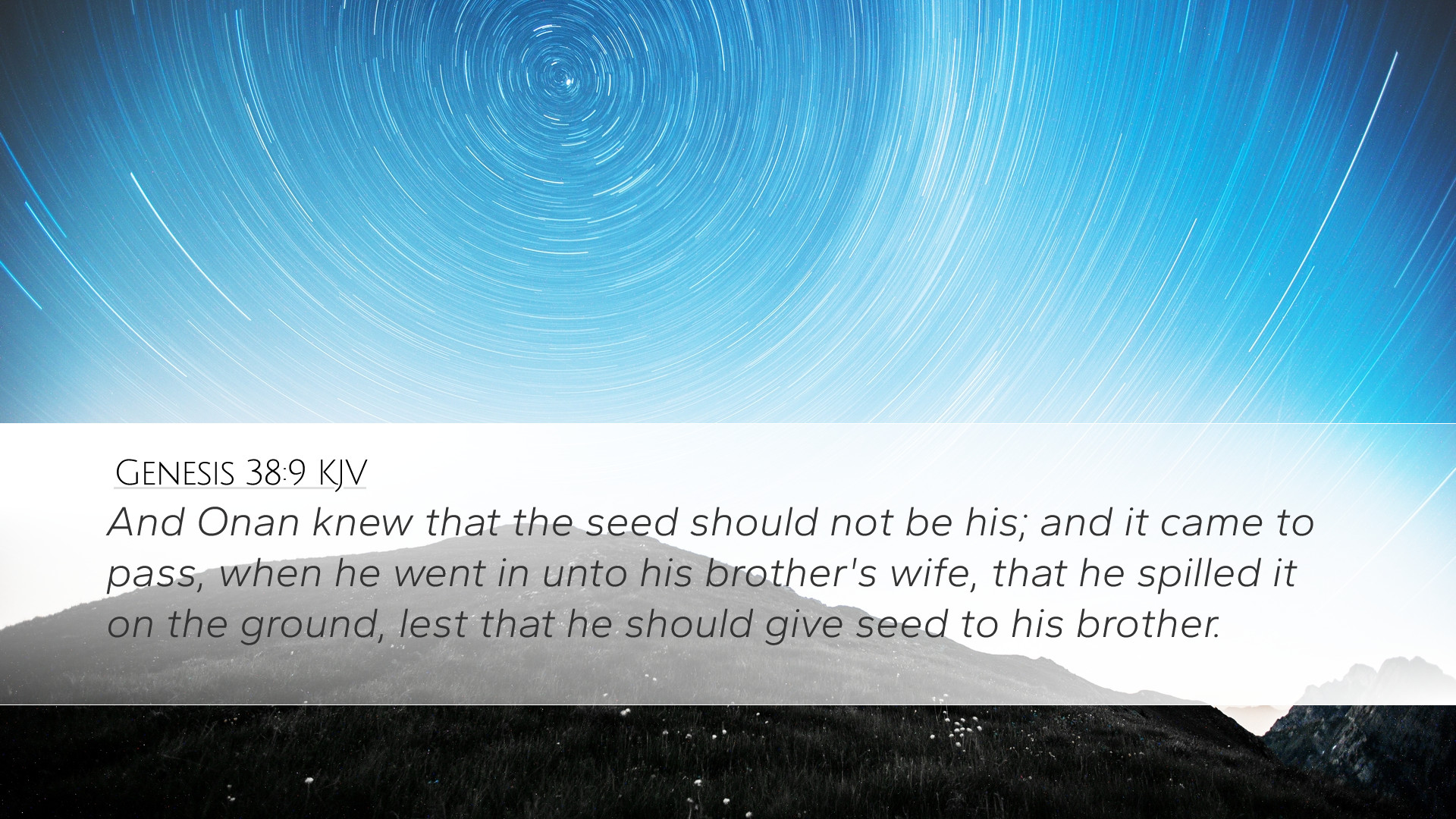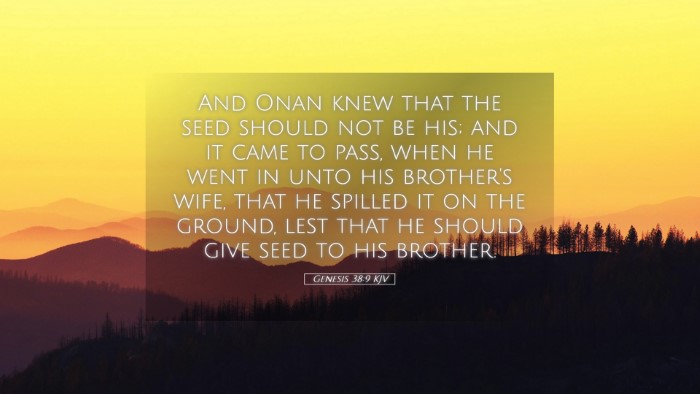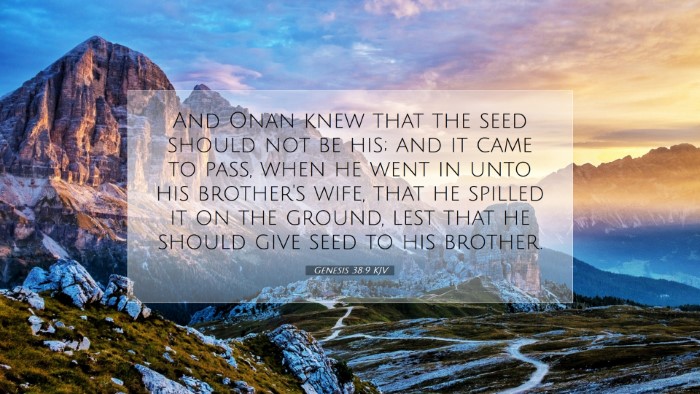Commentary on Genesis 38:9
Verse Context: Genesis 38:9 states, "And Onan knew that the seed would not be his; and it came to pass, when he went in unto his brother's wife, that he spilled it on the ground, lest that he should give seed to his brother." In this verse, we encounter the character of Onan, and the principles outlined in this narrative inform our understanding of duty, responsibility, and divine expectations.
Overview
This passage occurs in the broader context of Judah and Tamar's storyline, which serves as a crucial narrative within the larger framework of Genesis. It explores themes of familial duty, the importance of lineage, and the ramifications of personal choice against divine commandments.
Insights from Public Domain Commentaries
Matthew Henry's Commentary
According to Matthew Henry, Onan's actions reflect a deep disregard for the prescribed duty of a levirate marriage—wherein a man was obliged to marry his deceased brother's widow to preserve his brother's line. Henry observes that Onan, aware of his obligation, chose to act selfishly. Rather than fulfilling his responsibility to Tamar, Onan chose to spill his seed, thereby thwarting God's plan for the continuation of lineage.
Henry emphasizes the moral implications of Onan's actions. He states that while Onan was under no obligation to father children himself, his refusal to follow through on his family duty brought about severe repercussions, suggesting that God expects fidelity to one's commitments even when they are of great personal discomfort.
Albert Barnes' Commentary
Albert Barnes pushes further into the ethical considerations surrounding Onan's conduct. He posits that Onan's refusal was not simply about avoiding progeny but was rooted in a selfish desire to keep his inheritance intact, as the offspring would belong to his deceased brother. Barnes articulates that Onan’s primary concern was for his own material gain rather than obedience to God’s desire for family continuity.
Furthermore, Barnes highlights that Onan’s sin was not just in the act of spilling his seed but also in his heart's intention. His willingness to engage in sexual relations with Tamar while simultaneously subverting God's covenantal promise reveals a deep-seated hypocrisy. This underscores the critical aspect of intentions behind actions, a theme pervasive throughout Scripture.
Adam Clarke's Commentary
Adam Clarke provides a more expansive view of the cultural context, explaining that the levirate marriage was rooted in the societal need to ensure the continuity of family lineage and inheritance. He affirms that Onan's actions were not just individual choices but had communal implications within the societal norms of ancient Israel.
Clarke argues that Onan's refusal to comply with his brother's obligation goes against the fabric of societal obligation and divine law, ultimately leading to God's judgment. He draws attention to the seriousness with which God viewed such neglect of duty, suggesting that the account serves as a cautionary tale for those who would refuse to honor their commitments or act against God's laws.
Theological Insights
When combining these insights, we can discern several theological principles from Genesis 38:9:
- The Weight of Responsibility: The narrative underscores the significance of understanding one’s duties within familial and societal structures. Onan's neglect illustrates the dangers of prioritizing selfish desires over divine expectations.
- Divine Judgment: The text foreshadows the judgment that Onan would ultimately face for his actions. This serves as a reminder that our decisions—especially those concerning others—hold weight and that divine oversight remains constant.
- His Intentions Matter: Onan's heart posture is emphasized in these commentaries. It teaches us that God not only sees our actions but also discerns the intentions behind them. True obedience involves both actions and the state of our hearts.
Conclusion
Genesis 38:9 serves as a poignant reminder of the broader implications of personal choices within the divine narrative. Onan's refusal to carry on his brother's lineage illustrates the profound consequences of disobedience and self-centeredness. For pastors, theologians, and students of Scripture, this passage invites ongoing exploration into the complexities of obedience, responsibility, and the nature of God’s expectations for our lives.


